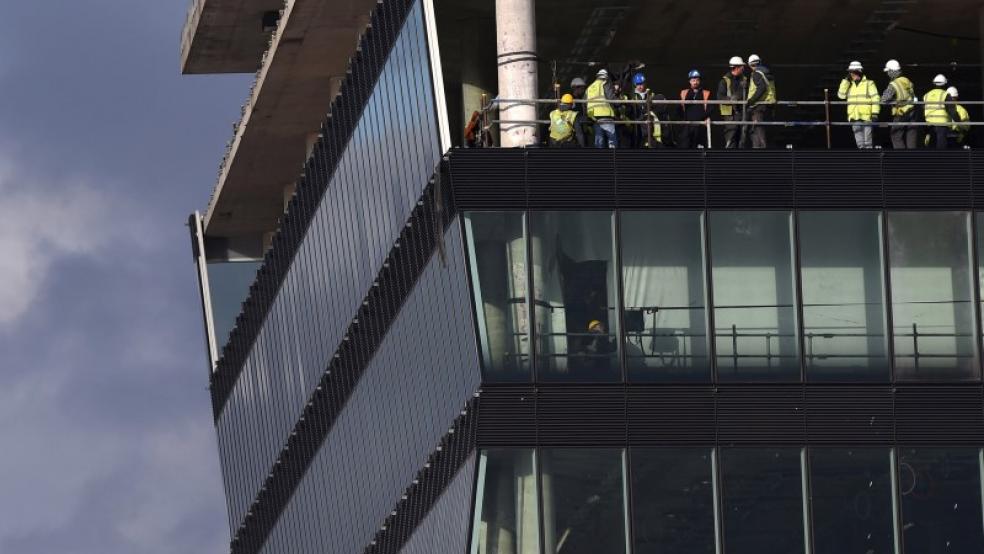DUBLIN (Reuters) - Six years of almost unbroken industrial peace in Ireland is beginning to fray, as a recovering economy breeds contested wage demands, weekly threats of strikes and a headache for the country's new government - whenever one is formed.
Ireland was spared the kind of walkouts and protests that beset its fellow bailout recipients - Greece, Spain and Portugal - throughout the financial crisis. Workers reluctantly stomached steep tax hikes and deep wage cuts.But with the economy set to outperform the rest of Europe for a third straight year after growing 7.8 percent last year, a string of conflicts have blown up in recent weeks, from factory workers to teachers, emergency call operators to train drivers.Progress was made in the most serious dispute on Wednesday, when a planned St. Patrick's Day strike by workers at one of Dublin's two rail services was deferred, averting action that would have upset the busy March 17 tourist occasion.Drivers pointed out that passenger numbers have soared as the jobless rate almost halved, to 8.8 percent, since 2012. They sought pay increases of more than 50 percent over the course of five years, although they later moderated their claims.Neither side disclosed the final details, but the terms will be closely watched across the economy. Trade unions say other pay claims are likely to follow, soon."I think you're going to see many workers seeking to reclaim the lost ground they had to concede during the recession," said Owen Reidy, the divisional organizer for the SIPTU trade union, which negotiated the agreement. "Workers right across the economy are becoming more confident."A 2010 deal mostly sheltered the public sector from further wage cuts, and Irish employers lost as few days to industrial disputes over the past six years as they lost during the same period at the height of the "Celtic Tiger" economy.The rate has crept up over the last 18 months alongside the re-emergence of pay rises. Ireland's central bank forecasts wages will rise another 2.5 percent this year and next.But living costs such as rent are outstripping that rate, and worker patience is being tested. The average wage dropped to its lowest level of the crisis as recently as late 2014. Although it has since risen by 6 percent, that has only taken it back to the levels of 2009. Frustration is rising that Europe's fastest growing economy is not translating into bigger pay packets. The frustration was reflected in the inconclusive election at the end of February, when the incumbent coalition was rejected by voters yet to benefit from the upturn.As parties struggle to piece together a new government, analysts predict it will face a far less harmonious period in Irish industrial relations. "You can see a lot of parallels with the election results. People felt not only was the recovery not continuing, they hadn't felt it," said Michael Doherty, professor of employment and labor law at National University of Ireland, Maynooth."You see something similar with the strikes. Workers are saying we've had years of cuts, years of more work for no more pay and we need to get something back. There is a wider connect into the public mood and I think we will see more disputes in the coming months, reflecting this anger on the ground." (Editing by Larry King)Ireland's industrial peace begins to fray in a political vacuum

© Clodagh Kilcoyne / Reuters



